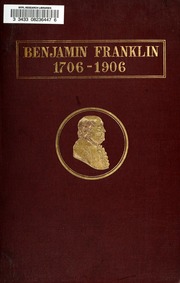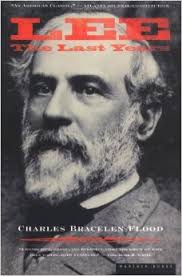In the Qur'an, Benjamin is referred to as righteous young child, who remained with Jacob when the older brothers plotted against Joseph. Textual scholars regard these two names as fragments of naming narratives coming from different sources - one being the Jahwist and the other being the Elohist.

The whole of chapter 38 deals with Jacob's son Judah and the events surrounding the birth of his two sons, twins. Just like we gave close attention to the details of the birth account of Ben-Oni / Benjamin, the details of this highly unusual birth account are worthy of our attention. However, some classical rabbinical sources argue that Joseph identified himself for other reasons. Notice here that Joseph's mother is mentioned as though she were alive (and therefore had not yet died in childbirth) and that his dream mentioned 11 stars. The narrative goes on to state that when Judah (on behalf of the other brothers) begged Joseph not to enslave Benjamin and instead enslave him, since enslavement of Benjamin would break Jacob's heart. In these sources, Benjamin swore an oath, on the memory of Joseph, that he was innocent of theft, and, when challenged about how believable the oath would be, explained that remembering Joseph was so important to him that he had named his sons in Joseph's honour; these sources go on to state that Benjamin's oath touched Joseph so deeply that Joseph was no longer able to pretend to be a stranger.

The Qur'an, in the narrative of Joseph, refers to Benjamin as the righteous youngest son of Jacob. The etymology of the name interpreted as son of the right side. The midrashic book of Jasher argues that prior to revealing his identity, Joseph asked Benjamin to find his missing brother (i.e. Jacob understood the 11 stars to represent Joseph's brothers, which indicates knowledge that Rachel was pregnant with Benjamin. Being associated with the right hand side was traditionally a reference to strength and virtue (cf sinister, which derives from the latin for left). Perez means "a breach." Since this chapter introducing his birth appears as a parenthetical insertion and therefore as a breach in the flow of the context our attention is arrested to seek out the deeper meaning.

Benjamin was the last-born of Jacob's thirteen children (12 sons 1 daughter), and the second and last son of Rachel in Jewish, Christian and Islamic tradition. He was the progenitor of the Israelite Tribe of Benjamin. Although the record of Benjamin's birth is found in Genesis chapter 35, his birth took place at around the time of Joseph's dream. This chapter has been inserted here to augment the prophecy being developed. Y'shua is the underlying subject of chapter 38 because He's descended from Perez, Judah's "middle twin" son. As we know from the prophetic scriptures, the children of Israel (and all who ever lived and will live - Isaiah 45:23) will eventually bow before Jesus. Islamic tradition, however, does not provide much detail regarding Benjamin's life and refers to him as being born from Jacob's wife Rachel, and further links a connection, as does Jewish tradition, between the names of Benjamin's children and Joseph. This caused Joseph to recant and reveal his identity. Modern scholars have instead proposed that, with the eponymous Benjamin being just a metaphor, son of the south / son of the right are references to the tribe's being subordinate to the more dominant tribe of Ephraim.
As you know (from having recently read Chapter 42, right?) they would indeed come to bow before Joseph. Later rabbinic traditions name him as one of four ancient Israelites who died without sin, the other three being Chileab, Jesse and Amram.
The Torah's Joseph narrative, at a stage when Joseph is unrecognised by his brothers, describes Joseph as testing whether his brothers have reformed by secretly planting a silver cup in Benjamin's bag, then publicly searching the bags for it, and after finding it in Benjamin's possession, demanding that Benjamin become his slave as a punishment. Joseph) via astrology, using an astrolabe-like tool; it continues by stating that Benjamin divined that the man on the throne was Joseph, so Joseph identified himself to Benjamin (but not the other brothers), and revealed his scheme (as in the Torah) to test how fraternal the other brothers were. In the Biblical account, unlike Rachel's first son, Joseph, Benjamin was born in Canaan. This is, however, not the only literal translation, as the root for right is identical to that for south, hence Benjamin also literally translates as son of the south. In the Samaritan Pentateuch, Benjamin's name appears as "Binyaamem" (Hebrew: ࠁࠍࠉࠌࠉࠌ, "Son of my days"). This meaning is advocated by several classical rabbinical sources, which argue that it refers to the birth of Benjamin in Canaan, as compared with the birth of all the other sons of Jacob in Aram. Joseph is declared in verse 2 as being seventeen, the probable difference in age between he and Benjamin.
According to the Torah, Benjamin's name arose when Jacob deliberately corrupted the name Benoni, the original name of Benjamin, since Benoni was an allusion to Rachel's dying just after she had given birth, as it means son of my pain.

The whole of chapter 38 deals with Jacob's son Judah and the events surrounding the birth of his two sons, twins. Just like we gave close attention to the details of the birth account of Ben-Oni / Benjamin, the details of this highly unusual birth account are worthy of our attention. However, some classical rabbinical sources argue that Joseph identified himself for other reasons. Notice here that Joseph's mother is mentioned as though she were alive (and therefore had not yet died in childbirth) and that his dream mentioned 11 stars. The narrative goes on to state that when Judah (on behalf of the other brothers) begged Joseph not to enslave Benjamin and instead enslave him, since enslavement of Benjamin would break Jacob's heart. In these sources, Benjamin swore an oath, on the memory of Joseph, that he was innocent of theft, and, when challenged about how believable the oath would be, explained that remembering Joseph was so important to him that he had named his sons in Joseph's honour; these sources go on to state that Benjamin's oath touched Joseph so deeply that Joseph was no longer able to pretend to be a stranger.
The Qur'an, in the narrative of Joseph, refers to Benjamin as the righteous youngest son of Jacob. The etymology of the name interpreted as son of the right side. The midrashic book of Jasher argues that prior to revealing his identity, Joseph asked Benjamin to find his missing brother (i.e. Jacob understood the 11 stars to represent Joseph's brothers, which indicates knowledge that Rachel was pregnant with Benjamin. Being associated with the right hand side was traditionally a reference to strength and virtue (cf sinister, which derives from the latin for left). Perez means "a breach." Since this chapter introducing his birth appears as a parenthetical insertion and therefore as a breach in the flow of the context our attention is arrested to seek out the deeper meaning.

Benjamin was the last-born of Jacob's thirteen children (12 sons 1 daughter), and the second and last son of Rachel in Jewish, Christian and Islamic tradition. He was the progenitor of the Israelite Tribe of Benjamin. Although the record of Benjamin's birth is found in Genesis chapter 35, his birth took place at around the time of Joseph's dream. This chapter has been inserted here to augment the prophecy being developed. Y'shua is the underlying subject of chapter 38 because He's descended from Perez, Judah's "middle twin" son. As we know from the prophetic scriptures, the children of Israel (and all who ever lived and will live - Isaiah 45:23) will eventually bow before Jesus. Islamic tradition, however, does not provide much detail regarding Benjamin's life and refers to him as being born from Jacob's wife Rachel, and further links a connection, as does Jewish tradition, between the names of Benjamin's children and Joseph. This caused Joseph to recant and reveal his identity. Modern scholars have instead proposed that, with the eponymous Benjamin being just a metaphor, son of the south / son of the right are references to the tribe's being subordinate to the more dominant tribe of Ephraim.
As you know (from having recently read Chapter 42, right?) they would indeed come to bow before Joseph. Later rabbinic traditions name him as one of four ancient Israelites who died without sin, the other three being Chileab, Jesse and Amram.
The Torah's Joseph narrative, at a stage when Joseph is unrecognised by his brothers, describes Joseph as testing whether his brothers have reformed by secretly planting a silver cup in Benjamin's bag, then publicly searching the bags for it, and after finding it in Benjamin's possession, demanding that Benjamin become his slave as a punishment. Joseph) via astrology, using an astrolabe-like tool; it continues by stating that Benjamin divined that the man on the throne was Joseph, so Joseph identified himself to Benjamin (but not the other brothers), and revealed his scheme (as in the Torah) to test how fraternal the other brothers were. In the Biblical account, unlike Rachel's first son, Joseph, Benjamin was born in Canaan. This is, however, not the only literal translation, as the root for right is identical to that for south, hence Benjamin also literally translates as son of the south. In the Samaritan Pentateuch, Benjamin's name appears as "Binyaamem" (Hebrew: ࠁࠍࠉࠌࠉࠌ, "Son of my days"). This meaning is advocated by several classical rabbinical sources, which argue that it refers to the birth of Benjamin in Canaan, as compared with the birth of all the other sons of Jacob in Aram. Joseph is declared in verse 2 as being seventeen, the probable difference in age between he and Benjamin.
According to the Torah, Benjamin's name arose when Jacob deliberately corrupted the name Benoni, the original name of Benjamin, since Benoni was an allusion to Rachel's dying just after she had given birth, as it means son of my pain.



